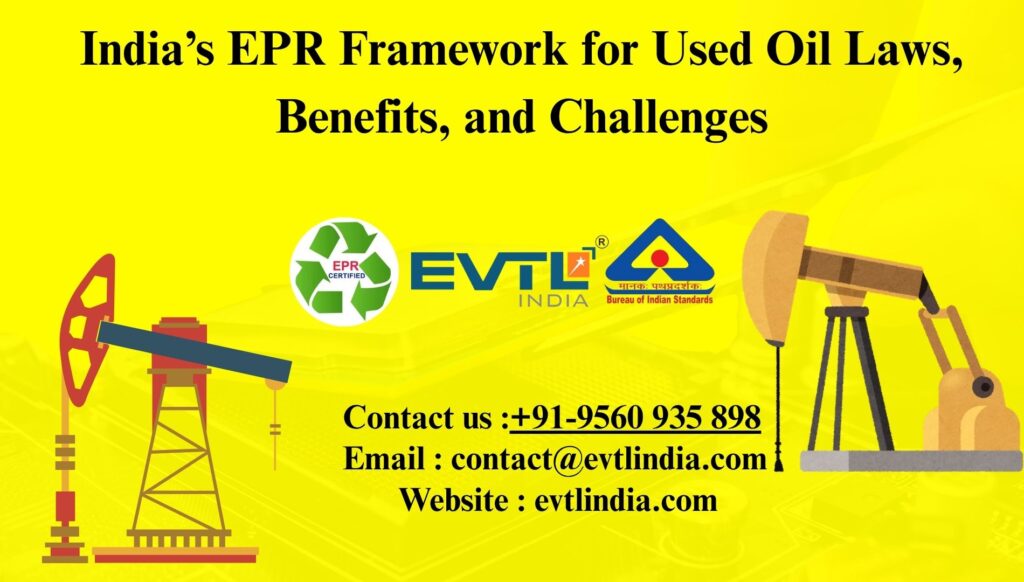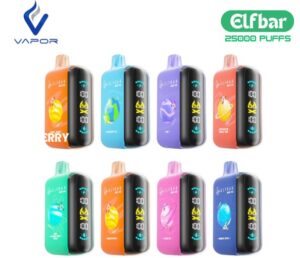
India is undergoing a transformative shift in how it manages hazardous waste, and used oil is one of the critical areas in focus. With a growing automobile sector, expanding industries, and widespread generator usage, the volume of used oil being produced in India is massive. However, without proper disposal or recycling, this used oil can wreak havoc on the environment and public health.That’s where EPR for Used Oil —Extended Producer Responsibility—steps in. This framework ensures that oil producers, importers, and major consumers take full responsibility for collecting, treating, and recycling used oil.In this article, we’ll break down everything you need to know about India’s EPR framework for used oil, including the laws, the benefits, the challenges, and how experts like a Used Oil Waste Consultant or the Number 1 Consultant in EPR can simplify the process for businesses.
What is EPR for Used Oil?
Extended Producer Responsibility (EPR) is a policy approach where the producer’s responsibility for a product extends to the post-consumer stage of its lifecycle. Specifically, Used Oil EPR refers to the legal obligation of producers and importers to ensure the environmentally sound management of used oil.
In simple terms, if you manufacture, import, or sell lubricating oil, you’re also responsible for ensuring that the oil you sell is eventually collected and recycled responsibly.
Understanding Used Oil and Its Impact
Used oil is a hazardous waste that results from industrial activities, vehicles, and generators. It contains heavy metals, chemical additives, and contaminants that can:
-
Pollute groundwater and soil
-
Harm aquatic and terrestrial ecosystems
-
Cause severe health problems when burned or disposed of improperly
Why India Needs a Robust EPR System for Used Oil
India generates an estimated 1.3 million metric tonnes of used oil every year, and a significant portion of this waste is either dumped, reused illegally, or burned in uncontrolled environments. A strong Used Oil EPR framework ensures:
-
Safe collection and recycling
-
Pollution control
-
Resource conservation through oil re-refining
Legal Framework Governing EPR for Used Oil in India
India’s EPR framework is governed by several key legislations and guidelines issued by the Central Pollution Control Board (CPCB):
1. Hazardous and Other Wastes (Management and Transboundary Movement) Rules, 2016
These rules classify used oil as a hazardous waste and define responsibilities for its proper handling and disposal.
2. CPCB Guidelines for Used Oil EPR
In 2022, CPCB released specific guidelines under which EPR Registration for Used Oil became mandatory for:
-
Producers (manufacturers and importers of base or lubricating oil)
-
Bulk consumers (transport, logistics, and manufacturing units)
-
Collection agents and recyclers
3. Environment Protection Act, 1986
This overarching legislation empowers the government to make rules for environmental protection and waste management, including EPR regulations.
How EPR Registration for Used Oil Works
If you’re a producer or importer of lubricating oil, you are legally required to register under the Used Oil EPR system.
Who Should Register?
-
Base oil/lubricant manufacturers
-
Lubricating oil importers
-
Large consumers (e.g., transport companies)
-
Authorized recyclers
Steps in the Registration Process
-
Visit the CPCB EPR portal.
-
Fill out the application form for Used Oil EPR.
-
Upload required documents (GST, PAN, incorporation certificate, etc.).
-
Pay the Used Oil EPR Government Fee.
-
Receive your EPR registration certificate upon approval.
Documents Required
-
Business registration certificate
-
GST and PAN details
-
Annual lubricant production/import data
-
Agreement with authorized recyclers
Used Oil EPR Return Filing – What You Need to Know
Once registered, producers must file periodic EPR returns outlining the amount of used oil they sold, collected, and got recycled.
Importance of Returns
Timely EPR return filing helps the government track oil waste and ensure environmental compliance.
Role of a Used Oil EPR Return Consultant
These professionals can help:
-
Maintain accurate collection and recycling records
-
Prepare and file quarterly/annual returns
-
Avoid fines and legal trouble
Why Hire a Used Oil Waste Consultant?
Let’s face it—EPR compliance isn’t easy. With the changing legal landscape, multiple forms, return filings, and audits, businesses can easily make mistakes.
Hiring a Used Oil Waste Consultant or EPR Consultant ensures:
-
End-to-end compliance support
-
Hassle-free registration and return filing
-
Peace of mind and time savings
Finding the Right Expert
Look for the Number 1 Consultant in EPR—someone with:
-
Proven industry experience
-
High client satisfaction
-
Up-to-date knowledge of CPCB rules
Used Oil EPR Government Fee Structure
CPCB has introduced a structured fee system based on the quantity of oil being produced or imported.
How is the Fee Determined?
The Used Oil EPR Government Fee depends on:
-
Type of business (producer/importer/consumer)
-
Annual quantity of oil produced/imported
-
Operational scale
Example Fee Brackets
-
₹5,000–₹25,000 for small-scale producers
-
₹50,000–₹1,00,000+ for large-scale oil importers
These fees help the government in managing compliance tools, audits, and waste tracking systems.
Key Benefits of India’s Used Oil EPR Framework
1. Environmental Protection
-
Reduces illegal disposal
-
Prevents contamination of soil and water
-
Encourages eco-friendly oil management practices
2. Economic Efficiency
-
Used oil recycling cuts down on crude imports
-
Encourages a circular economy
-
Lowers production costs for industries using re-refined oil
3. Regulatory Compliance and Risk Mitigation
-
Avoids penalties under the Environment Act
-
Builds trust with regulators and consumers
4. Corporate Social Responsibility (CSR)
-
Boosts your brand’s green credentials
-
Demonstrates ethical and responsible business practices
Challenges in Implementing Used Oil EPR
Despite the advantages, implementing EPR comes with a set of challenges:
1. Lack of Awareness
Many producers and importers are still unaware of the requirement for EPR Registration for Used Oil.
2. Infrastructure Gaps
India lacks adequate used oil collection and recycling facilities, especially in rural areas.
3. Informal Sector Dominance
A major chunk of used oil is still handled by unregistered recyclers, bypassing the EPR system.
4. Inconsistent Enforcement
While rules are in place, state-level implementation varies, creating confusion and loopholes.
Government Initiatives to Strengthen EPR for Used Oil
To tackle the above challenges, the government has introduced:
Digital Monitoring Tools
-
Online portals for real-time tracking
-
QR-based manifests for transportation of used oil
Audits and Penalties
-
Routine audits for registered producers and recyclers
-
Fines for non-compliance or false reporting
Capacity Building
-
Training sessions for businesses
-
Partnerships with industry bodies
Future of Used Oil EPR in India
India’s EPR system is expected to evolve significantly over the next few years.
Upcoming Reforms
-
Stricter targets for oil collection and recycling
-
Inclusion of lubricant retailers in the EPR framework
-
Mandatory agreements with CPCB-approved recyclers
Digitalization and AI Integration
Smart tools and apps will help automate return filing, oil tracking, and compliance monitoring.
Conclusion
India’s EPR Registration Consultant is a powerful step toward a cleaner, greener future. It ensures that oil producers take full responsibility for the lifecycle of their products. While the legal process may seem overwhelming, hiring an experienced Used Oil Waste Consultant or the Number 1 Consultant in EPR can simplify everything from registration to return filing. With growing awareness, digital tools, and government support, India is poised to create a world-class system for used oil recycling and environmental safety. It’s time for businesses to act—not just to comply with the law, but to make a lasting impact on the planet.
FAQs
1. What is EPR for Used Oil?
It’s a legal obligation where producers and importers of lubricating oil are responsible for collecting, managing, and recycling used oil.
2. Who needs to complete EPR Registration for Used Oil?
All producers, importers, large consumers, and recyclers of oil must register under the CPCB’s EPR guidelines.
3. What does a Used Oil Waste Consultant do?
They help businesses register, file EPR returns, and comply with CPCB regulations efficiently.
4. How much is the Used Oil EPR Government Fee?
It depends on your business scale but ranges between ₹5,000 and ₹1,00,000+.
5. Why should I hire the Number 1 Consultant in EPR?
An expert ensures timely registration, error-free returns, and ongoing compliance—saving time, money, and legal headaches.



